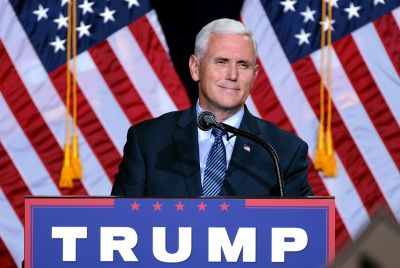Analysis: Apple-Samsung battle may spur supplier shakeup
An intensifying quarrel between Samsung and Apple is triggering expectations that some of the pairs' $5 billion-plus relationship may be up for grabs.
With the electronics titans squaring off in an acrimonious battle over smartphones and tablets patents, any worsening in their supply relationship could mean more business for Toshiba Corp, Micron, Hynix Semiconductor, Intel and TSMC.
Apple's move to protect its smartphone and tablet business comes as Samsung is set to become the world's top smartphone vendor, ending Nokia's decade-plus reign.
Samsung makes parts central to Apple's mobile devices, but Apple in April accused the South Korean company of slavishly copying the iPad and iPhone in its own Galaxy devices.
While it would be a challenge for Apple to sever or water down its long-standing relationship with the huge Korean company, Apple CEO Steve Jobs is known for abruptly spurning erstwhile partners. Its relationship with Google cooled rapidly after the Internet giant got into smartphones, for instance.
Longer-term, finding alternative sources for components and reducing its reliance on Samsung for everything from flash memory to processors and displays would make sense for Apple as the two compete head-to-head in an exploding market for mobile devices, analysts say.
They have become more competitors and less partners and so I think Apple will definitely not be looking to Samsung as its go-to partner-of-choice for NAND flash, said Brian Marshall, an analyst with Gleacher & Co. He expects Apple to source its future mobile processors from other companies than Samsung.
Supplying major parts for Apple's iPads and iPhones, the industry's gold standards, would be a coup for any company.
Making the silicon brains for those gadgets would mean a boost in revenue for Taiwan Semiconductor Manufacturing Corp, the world's largest contract chip maker. And it would be a major victory for PC chipmaker Intel, which is scrambling to find traction in the fast-moving mobile market and has repeatedly expressed a desire for Apple business.
There is a lot of competition, especially for high-profile and leading-edge wins like Apple, said Real World Technologies analyst David Kanter. When you toss Intel into the mix, then it becomes even more interesting.
Fubon Research estimates that manufacturing some of Apple's next-generation A6 chips could account for 3 percent of TSMC's $18 billion of revenue next year.
And Citigroup estimates new business from Apple could account for around 1.4 percent of Intel's sales, expected to hit $56 billion in 2012, were they to snag the deal.
GALACTIC BATTLE
Samsung's Galaxy gadgets are seen as among the biggest challengers of Apple's mobile devices, but Samsung has so far been unable to approach the Silicon Valley company's roaring sales growth.
While Apple downplays the rivalry, with COO Tim Cook calling Samsung a valuable component supplier soon after the first lawsuit, its courtroom actions tell another story.
Apple fired the first salvo in April by suing Samsung in a San Jose, California, federal court, saying the Galaxy lineup infringed on its mobile technology patents.
Samsung shot back with claims of its own. Both have now asked a U.S. trade panel to block the imports of the other's devices. They have also unsuccessfully filed requests to see each other's upcoming smartphone and tablet models.
Losing Apple's business can be highly distressing, as small chipmaker PortalPlayer found out. Shooting to prominence in 2004 supplying chips for iPods, Apple at one point accounted for 90 percent of its revenue. But it was devastated when it eventually fell out of favor with the California company.
Apple has already started diversifying its supply chain away from Samsung, Sterne Agee analyst Shaw Wu said.
For displays, Apple recently agreed to add Taiwan's Chimei Innolux as a third supplier, he said.
But it is not easy to get Apple business, or support its massive volume. For instance, not all semiconductor foundries are large enough or advanced enough to meet Apple's requirements.
TSMC is an obvious candidate to win processor business from Apple in the near term as it budgets $7.8 billion for capital expenditures this year to update technology and add capacity. It also has experience with ARM architecture, widely used by Apple to make power-efficient mobile chips.
Another option is cross-town neighbor Intel, which already supplies processors for MacBooks and is investing billions to improve its mobile Atom chips. CFO Stacy Smith said in May his company was interested in making its advanced manufacturing technology available to other companies.
NO CLEAN BREAK
Separating itself from Samsung would take time, and nerve. It can take months to configure foundries to produce new chips and thoroughly test them in the devices for which they will be made.
Concentrating production of displays, flash memory and application processors at Samsung may be cheaper for Apple than sourcing those components from several suppliers. And current supply contracts could be wrapped in legal language, making it difficult to get out of them.
As well, Samsung and Apple may be able to limit their dispute, allowing themselves to maintain a healthy relationship in other business areas in the short-term even as Apple continues to diversify its supply base.
Cook said in April the two companies' ties would continue, even though Samsung's mobile unit had crossed the line.
Last year, Apple was Samsung's No. 2 customer, accounting for $5.7 billion of sales tied mainly to semiconductors, according to Samsung's annual report. It has since become Samsung's top client.
The reality is that they kind of need each other, Wu said. The other reality is that they make a lot of money off each other. (Editing by Edwin Chan and Maureen Bavdek)
© Copyright Thomson Reuters 2024. All rights reserved.





















